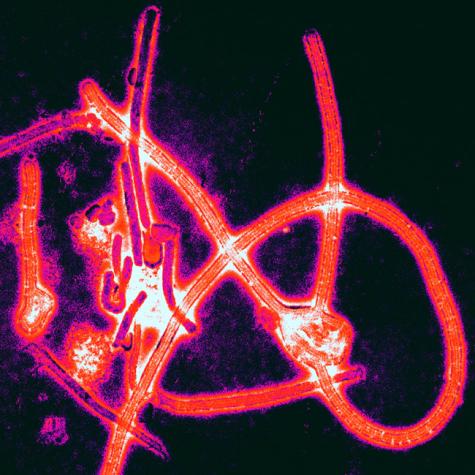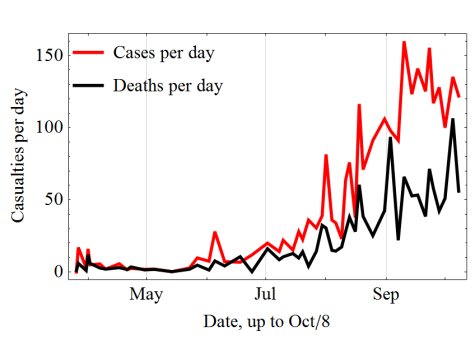The Truth About Ebola Revealed
October 14, 2014
In recent months, a contagious disease called Ebola, or Ebola hemorrhagic fever, has come to global attention. Though the disease originated in West Africa, Americans fear what the illness means for the rest of the world; however, as with most medical concerns, there are many myths and facts swirling around the subject of Ebola.
What is Ebola?

Though junior Nathan Shelley characterizes ebola as “a disease in Africa that kills people,” there is more to the illness that is causing fear worldwide.
As for signs and symptoms, they start out quite mild and similar to those of a cold. The World Health Organization describes the early stage as muscle fatigue, fevers, headaches, and sore throats. After that, the symptoms quickly escalate to internal and external bleeding, vomiting, rashes and organ failures.
CNN does give some good news: unlike illnesses like the flu, Ebola is not transmitted through air, which makes the illness harder to contract. Instead, Ebola is transmitted through bodily fluids. Though the disease spreads easily through small amounts, one cannot contract it by just being close to someone.
Where is Ebola?
Senior Amie Larum states that Ebola “originally started in Africa [with] a recent case in Texas,” and in general, she’s correct.
Named after the Democratic Republic of Congo’s Ebola River, where it was first discovered as early as 1976, the virus has recently caused chaos in West Africa. Countries including Guinea, Liberia, and Sierra Leone have had well over a 1,000 deaths as of October 5 (via CNN).
Since its origin in Africa, the illness has not effectively spread to the rest of the world. For The United States, there have been two known cases.
How is the World Handling Ebola?

According to the CDC, the official host of the disease is unknown, but researchers are starting to point their fingers to bats. The virus has a 50-50 survival rate overall, but unfortunately the rates have been between a 25% to 90% chance of death.
Because of these statistics, there is a decent amount of fear regarding the disease. Still, there are no official vaccines for the virus, so doctors can only treat cases that have already started, which only raises more red flags in people’s minds. To treat this virus, it is important to replenish fluids, utilize blood transplants, and prescribe some general drugs. Immediate treatment has yielded positive results.
Is Ebola Truly An American Threat?
Senior Nick DeLuca still does not think that Ebola will create an actual threat to himself or other Americans.

“No, [I don’t think it’s a threat] because of the way The United States is set up with medication,” said DeLuca. “[Therefore], it’s not really a threat.”
Unfortunately, the first victim of Ebola, a Liberian native named Thomas Eric Duncan, passed away on October 8; however, he contracted the illness originally in Liberia. Since then, a nurse who cared for Duncan was diagnosed, but her condition is stable. This is the first case of Ebola to come from the United States directly.
The CDC urges people to be safe flying whether it be international or within the United States, but overall, the organization does not believe Ebola to be a threat to most Americans due to its concentration in a portion of Dallas, Texas.



